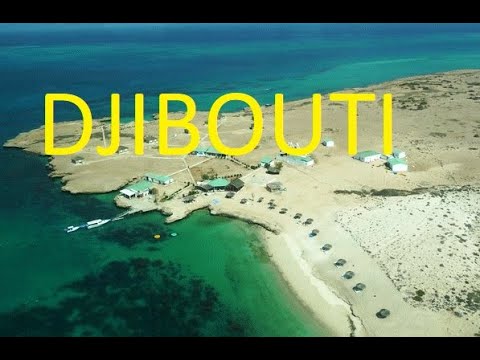
Nestled strategically on the northeastern coast of the Horn of Africa, Djibouti is a country that often escapes the limelight but offers an array of breathtaking landscapes, rich culture, and an intriguing geopolitical status that makes it a unique destination for travelers and geopolitical analysts alike.
#### Geographical Wonder
Despite its small size, Djibouti boasts a remarkably diverse geography that ranges from salt lakes to volcanic formations and rugged mountains. Lake Assal, situated in the Danakil Desert, is one of the country’s most famous sites. It is not only the lowest point on the African continent but also one of the saltiest bodies of water in the world, surrounded by stark white salt flats reminiscent of another planet.
Nearby, you can find another natural marvel—Djibouti’s dormant volcanoes. The Ardoukoba Volcano last erupted in 1978 and offers spectacular views and an insight into the geological forces shaping Africa.
#### Biodiversity and Natural Reserves
Djibouti’s coastal ecosystem features some of the richest marine biodiversity in the world. The Gulf of Tadjoura, with its calm and clear waters, is ideal for snorkeling and diving. Here, adventurers are rewarded with sightings of whale sharks (mainly between November to January), manta rays, and vibrant coral reefs that support diverse aquatic life.
For wildlife enthusiasts looking to explore beyond marine treasures, Djibouti’s Day Forest National Park offers a chance to experience a more terrestrial biodiversity including juniper forests and rare African species like dik-diks and warthogs along with various endemic birds.
#### Culture: A Melting Pot
Djibouti hosts a melting pot of cultures predominantly influenced by its Somali and Afar populations. The local cuisine is an exquisite blend reflecting Arab influences; expect to enjoy meals like Fah-fah (soup) or Skudahkharis (lamb stew), spiced with exotic flavors found in this part of Africa.
The capital city, also named Djibouti, is where French colonial heritage meets modern day East Africa. French is widely spoken here due to historical ties as a French territory until 1977 when Djibouti gained independence. Walking through the city one can see French architecture alongside traditional markets (souks) bustling with activity.
#### Strategic Importance
Geopolitically speaking, Djibouti holds significant strategic importance due to its location at the mouth of Red Sea leading into Suez Canal—one crucial for international shipping lanes carrying oil from Middle East to Europe and North America . This positioning has led numerous countries including United States China Japan among others establish military bases here contributing both economically socially but also making it a center international diplomacy security concerns regionally globally .
#### Travel Tips
When planning a visit:
– Best time go November-April cooler temperatures .
– Dress modestly respect local customs especially outside tourist areas .
– Be prepared variable accommodation standards although luxury options available .
– Consider hiring guide maximize understanding historical cultural contexts during excursions .
Exploring Djibouti offers more than just sightseeing—it’s an immersive journey into heart humanity at crossroads civilizations . Whether you’re drawn by natural beauty quest cultural enlightenment remarkable blend both awaits this understated yet fascinating corner world .
